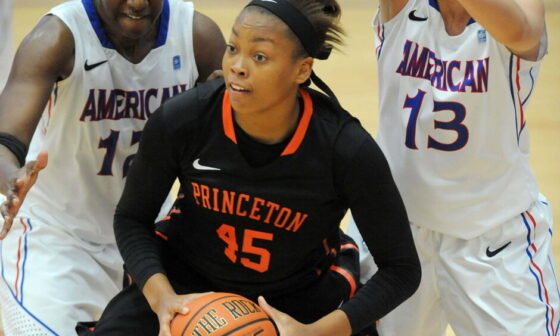Key Points
- Dumitru Moceanu was likely a Romanian-American and former member of the Romanian national junior gymnastics team, born in 1954 in Greece to Aromanian parents.
- He immigrated to the United States in 1980 with his wife Camelia—also a former gymnast—and dedicated himself to supporting his children’s futures in gymnastics.
- As the father of Olympic gold medalist Dominique Moceanu, he played a significant role in her career by managing her training and finances, though not without controversy.
- His career was marked by both dedication and dispute, including legal battles over alleged mismanagement and abuse.
- Despite a turbulent relationship with his daughter, the two reconciled later in life before Dumitru passed away in 2008 from cancer at age 54.
Background and Early Life
Dumitru Moceanu’s career begins with a fascinating mix of cultures and athletic drive. Born on October 6, 1954, in Greece to Aromanian parents, he was reared with Balkan traditions and a love of sports. Dumitru was introduced to gymnastics as a child in an affluent household, a passion that would later inspire his daughter Dominique.
Dumitru joined the Romanian junior gymnastics squad. Although details of his junior exploits are scant, his engagement suggests dedication and a profound connection to the sport. Gymnastics’ physical and mental demands may have prepared him for supporting a future champion.
Dumitru’s life changed when he moved to America in 1980. He left Eastern Europe for a new life where he and his family would influence American gymnastics. This transfer, together with his wife Camelia, a Romanian gymnast born in 1961, began a new chapter of ambition, optimism, and a better future.
Family Foundations and the Birth of a Gymnastics Dynasty
The Moceanu family moved to America to seize new opportunities, not just change geography. Dumitru and Camelia had Dominique, Jennifer (adopted), and Christina in the US. The children were raised with hard work and determination, with gymnastics playing a major role in their lives.
Dominique Moceanu, born on September 30, 1981, quickly emerged as a prodigy in the gymnastics arena. Recognizing her innate talent, Dumitru and Camelia enrolled her in gymnastics classes when she was just three years old. The early training laid the foundation for what would become an illustrious career in the sport. By the early 1990s, it was clear that Dominique was destined for greatness.
When the family moved to Houston, Texas, in 1991, their gymnastics dedication grew. This was meant to help Dominique practice with gymnastics legends Béla and Marta Károlyi. The move highlighted the family’s sacrifices for sports achievement and established Dumitru’s reputation as a supportive father and champion-maker.
Steering a Champion: Involvement in Dominique’s Gymnastics Career
Dumitru Moceanu was a caring parent and a motivated career manager for his daughter. His commitment exceeded typical parental emotional support. Dumitru managed Dominique’s funds and training, a difficult task. This advocacy and management position helped Dominique rise in competitive gymnastics.
Dominique joined the 1996 U.S. team, a dream for many competitors. Olympic team. She helped the “Magnificent Seven” win the Atlanta Olympics gold medal at 14. Dominique’s win was a credit to her parents’ unwavering support and careful supervision, especially Dumitru.
Dumitru founded 70,000-square-foot Moceanu Gymnastics in Spring, Texas, to invest in Dominique’s future throughout her sports success. A modern gym was designed for Dominique and other young athletes to exercise and thrive. Dominique used her salary, savings, and loans to fund the gym. As grandiose as the project was, financial issues forced its closure in February 1999, less than two years after its founding.
Controversies and Legal Battles
Despite their athletic prowess and desire to build a gymnastics dynasty, the Moceanu family had dark sides. Dominique’s father-daughter connection began to crumble in the late 1990s. The stress of public expectations and managing a burgeoning athletic career at a young age disrupted family relationships.
Dominique, 17, petitioned for emancipation from her parents on October 19, 1998, marking a turning point. She accused her parents of financial mismanagement and emotional abuse in her lawsuit. The most significant accusation was that she stole $4 million of her earnings, including money invested in the failed Moceanu Gymnastics facility.
The court struggle was heated and personal. During that time, court documents and media reports detailed allegations of financial exploitation and even accusations of stalking, a temporary restraining order, and the negotiation of hiring a hitman against her coach and a friend. These assertions shaped public view of the Moceanu family even though they were never proven.
The controversy reached its peak with the granting of Dominique’s emancipation on October 27, 1998. This legal decision allowed her to take control of her earnings and her future, a move that was both liberating and deeply reflective of the rift within the family. Despite the legal wrangling, Dumitru maintained that his actions were motivated by a desire to protect and support his daughter, although many viewed the situation as a stark example of the complexities involved when personal ambition and familial responsibility collide.
Reconciliation and Renewed Bonds
The legal disputes and public issues showed a family in distress, but there were also signs of reconciliation and healing. Over time, Dominique and her father began to reconnect. Dumitru walked Dominique down the aisle at her 2006 wedding, marking their rekindled relationship. This touching deed symbolized forgiveness and healing, reducing previous wounds.
Dominique’s later thoughts about her father illuminate their complex connection. He was “strong-willed” and “courageous” and loved his family despite the difficulties and disagreements, she said in interviews and personal remarks. Dominique later thanked him for helping the family integrate into American society and cultivating Dominique’s talents.
Reconciliation could not remove sad memories, but it offered healing and understanding. It showed that family relationships can be imperfectly repaired despite deep-seated conflicts and court fights. Many who followed the Moceanu family saw their reconciliation as a personal touch to a narrative dominated by dramatic disputes.
Later Life and Enduring Legacy
Final years of Dumitru Moceanu were distinguished by personal struggle and introspection. He battled cancer for five years before his death with the same resolve as before. Despite his physical ailment, Dumitru was remembered as a loyal family guy with gymnastics ambitions.
in 54, Dumitru died in Odyssey House hospice in Houston, Texas, on October 12, 2008. His death was a peaceful reflection on his life of achievements and sorrows. A turbulent and prominent life ended with burial at Houston’s Calvary Hill Cemetery.
Dumitru’s legacy is complex. He is renowned as the father of Dominique Moceanu, an American gymnastics icon and Olympic gold medalist. On another level, his story warns of the challenges of managing a child’s career in elite athletics. Financial blunders and court disputes throughout the family’s stormy period remind us of the pressures and consequences of exceptional talent and public achievement.
In the context of American gymnastics, Dumitru’s efforts are important. His early efforts to construct a dedicated training facility, his constant conviction in his daughter’s ability, and his sacrifices for her achievement helped her become a national champion. After the scandals, his reconciliation with Dominique revealed that, despite his weaknesses, he was driven by love and determination.
Dominique Moceanu’s participation in gymnastics—now through safety and well-being initiatives—has evolved from her father’s early influence. While the past problems are always remembered, Dumitru’s involvement in establishing one of American gymnastics’ most remarkable chapters is also recognized.
FAQ
What was Dumitru Moceanu’s background in gymnastics?
As a child, Dumitru Moceanu competed in Romanian junior gymnastics. While his gymnastics successes are scarce, his early commitment prepared him to support his daughter Dominique’s career.
How did Dumitru contribute to Dominique Moceanu’s career?
Dumitru was instrumental in Dominique’s gymnastics growth. He organized her training, money, and family move to Houston, Texas, to train with the famed Károlyi trainers. Dedicated to her career, he founded Moceanu Gymnastics, a training center for her athletic progress.
What were the major controversies involving Dumitru Moceanu?
The most important incident happened in the late 1990s when Dominique, then 17, applied for independence, accusing her parents of financial mismanagement and emotional abuse. She claimed $4 million was squandered, including money put on a 1999-closed gym. The family’s story was haunted by the judicial battle and public disputes.
Did Dumitru and Dominique ever reconcile?
Despite numerous legal and personal issues, Dumitru and Dominique reconciled later in life. In 2006, Dumitru led Dominique down the aisle during her wedding, symbolizing their reconciliation. This was a crucial step in repairing long-standing rifts.
What is Dumitru Moceanu’s lasting legacy in gymnastics?
Dumitri Moceanu left a legacy of ambition, support, and controversy. He is most known as the father of Olympic gold medalist Dominique Moceanu, but his attempts to construct a gymnastics facility and manage a complex career in professional sports demonstrate his passion and the difficulties of reconciling family and ambition. His narrative still impacts player management and family engagement in sports.






